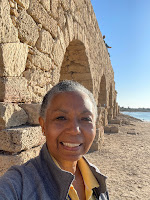Earlier this year I wrote about my new role as the executive director of Widerstand Consulting. Widerstand works with organizations that are trying to dismantle racism within their institutions. Accepting that role has changed what I pay attention to, what I read, the conference sessions I attend, and more. This past weekend I attended the conference entitled, The Religious Origins of White Supremacy: Johnson v. M’Intosh and the Doctrine of Christian Discovery. This was an international conference held at Syracuse University and it was packed with information. I want to use this post to share some of it. (There is no way I can share all that I learned. Wow!)
Introduction
Much has been written - and will continue to be written - about Johnson v, M'Intosh, which is a court case heard by the U.S. Supreme Court in 1823. CaseBriefs has a short synopsis. Notice that it says:
The United States holds absolute title with the exclusive right to
convey land while the Native Indians only had a right of occupancy that
can be extinguished at any time.
The Supreme Court opinion in this case was written by Chief Justice John Marshall and is part of the "Marshall Trilogy"that became the basis for U.S. Indian Law (also known as U.S. Anti-Indian Law). The ruling in this case - and in many others including City of Sherrill v. Oneida Indian Nation of New York (2005) where Justice Ruth Bader Ginsburg wrote the majority opinion - use the Doctrine of Discovery as their foundation, even if not named specifically.
What is the Doctrine of Discovery? The Doctrine is part of a framework established in the 15th Century by Catholic Popes and European Kings to acquire land. According to the Cornell Legal Information Institute:
The doctrine of discovery refers to a principle in public international law
under which, when a nation “discovers” land, it directly acquires
rights on that land. This doctrine arose when the European nations
discovered non-European lands, and therefore acquired special rights,
such as property and sovereignty rights,
on those lands. This principle disregards the fact that the land
oftentimes is already inhabited by another nation. In fact, this
doctrine was used in order to legitimize the colonization of lands outside of Europe.
The doctrine has affected Indigenous people around the world. It was this doctrine, the Johnson v. M'Intosh decision, and the ongoing effects of both that were the basis for this 2 1/2 day conference.
Indigenous-Centered Space
I need to note that this conference was held on the unceded ancestral and current land of the
Onondaga Nation at Syracuse University.
Many sponsors supported this conference, including the Henry Luce Foundation. The Onondaga Nation and speakers from other Indigenous communities - including
Māori creatives and activists from the land we know as New Zealand - were ever present to provide their point of view. They helped the rest of us see the deep impact of the Doctrine of Discovery. Because of them, I learned more than I could have imagined.
Besides the numerous and intense conference sessions, I'm glad that I was able to participate in the social dances on Friday evening, view Māori art on Saturday, and partake in a Māori event on Sunday. Those, along with a play (mentioned below) gave respite from the overwhelming amount of information I was ingesting, while also keeping me focused on my Indigenous siblings. Legal Perspectives
Several attorneys and law school faculty presented at the conference including - and likely not limited to - Robert J. Miller, Steven Newcomb, Joe Heath, Beverly Jacobs, Nicolas Robinson, Paula Johnson, Dana Lloyd, and Peter d’Errico. These are people who have been studying Indian Law, fighting against the impact of the Doctrine of Discovery and Johnson v. M'Intosh, and working nationally and internationally on Indigenous rights. Their command of the facts and of court cases was amazing.
What really stood out to me is that we can't just look at recent history and the Doctrine of Discovery. We must go back to the 1400s and understand what the Papacy, Spain, France, Portugal, and England were doing and why. Then we must follow the impact of those intentions, and see how the Doctrine of Discovery continued to have impact, including in the Louisiana Purchase and other actions that the U.S. has taken. The Doctrine needs to be a constant lens that we use to view what is happening around us. And since the Doctrine was used worldwide, we should use that lens as we view politics, conflicts, etc. in other regions.
By the way, the Doctrine of Discovery is also referred to as the Doctrine of Christian Discovery, since the Papal Bull (papal decree) was issued by the Christian/Catholic Church (and before the Protestant Reformation). It is also referred to as the Doctrine of Domination, since its result was that one group (Europeans) used it to dominate those they encountered in other parts of the world.
The Doctrine of Discovery website contains information on relevant court cases. I believe that Steven Newcomb, Robert Miller, and others have written books on this and there may be relevant talks available on YouTube. For example, a quick Internet search shows that Robert J. Miller has a number of articles and videos on this.
Re-translating the Papal Bulls
Sebastian Modrow, from Syracuse University, is interested in the papal bulls and has visited the Vatican Library where they are held. And he is translating them from Latin to English, mindful that how we think about the Latin now will be different than how they were translated years ago. One document is already available on the Doctrine of Discovery website.
During his presentation, Sebastian showed a map of the known world in the early 1400s, which helped to set the stage for speaking about the various papal bulls. We don't think about what the world looked like to those European explorers and what they hoped to be sailing to...and what they wanted to do once the arrived. We learn that Columbus, for example, was trying to get to India. However, would he have laid claim to land in India as explorers did in the Western Hemisphere? We they "just" exploring or were they trying to blatantly expand the empires of Spain, Portugal, France, and England.
At any rate, I look forward to reading Sebastian's work and hearing what he learns. I'm sure his translations will be important for those opposing what those papal bulls did.
Religious Racism
There were several sessions on religion and the Doctrine of Discovery, including a panel with the Episcopal Bishop DeDe Duncan-Probe, Lutheran Bishop Lee Miller II, and Catholic Bishop Douglas Lucia. All of the bishops are from Central NY. The session was moderated by Turtle Clan Mother Freida Jacques (Onondaga). Jake Haiwhagai’i Edwards offered replies to the statements made by the bishops.
This session stood out because the bishops were guarded, as might be expected. While information was flowing freely in the other sessions, this group was mindful - I think - of their role in their larger denominations. They can't go further or go faster than their denominational colleagues.
Bishop Lucia did ask how we can live out the repudiation issued by the Vatican. One person in audience asked the bishops about rematriating land that their churches hold, which would be one way doing more than just saying words. Both the Lutheran and Episcopal bishops said that they are in the process of giving back land and hope to have something to announce in the (near) future. The Catholic bishop noted that it is the parishes who hold the land and so he will work to convince them to rematriate land as they can.
I'll note that Bishop Lucia did not mention the statue of Columbus which stands in front of the Catholic Cathedral in Syracuse. That statue has been hotly discussed by many. As of Nov 20, 2023, a NYS appellate court has ruled that the statue can be removed. Syracuse Mayor Ben Walsh wants to move the statue to a different area.
It would have been wonderful if the bishops had talked about how they are confronting the ongoing impact of the Doctrine of Discovery in their religious structures. And if they had nothing to point to, perhaps they could have talked about what they want to do in the future. What are their plans?
Episcopal Bishop DeDe Duncan-Probe said that she had told her congregations that they cannot do a land acknowledgement without having done some action to support the Indigenous communities. That seems wise.
Poster Sessions and Student Papers
On Saturday, three students from Northern Virginia Community College presented on the political origins of the January 6, 2021 event which occurred at the U.S. Capitol. Professor Joel Harrison uses that event to engage students in how religion is impacting politics. It was good to see students thinking about this. They mentioned ideas and images that date to the Crusades as well as modern imagery. As undergraduates, their work was not as in-depth as what a master's or doctoral student would do, but it was still thought-provoking.
On Sunday, several SUNY Environmental Science and Forestry students, from the Diversity and Knowledge of the Environment Class, presented posters from their class taught by Sarah Nahar. I spent a lot of time talk with one student (I believe Duncan Spatz) about his poster which showed what Manhattan might look like if it had never been colonized. Wow!
In the Court of the Conqueror
Writer and performance artist,
George Emilio Sanchez, in collaboration with Patty Ortiz, performed his one-person play on Saturday evening.
In the Court of the Conqueror:
...confronts the history of how the courts have diminished the Tribal Sovereignty of Native Nations, juxtaposed against sanchez’ experiences navigating generational trauma and Indigenous identity in an Ecuadorian immigrant household.
It is an amazing piece, which reinforced what I had heard during the day. I laughed as I heard Sanchez talk about aspects of his life and then left speechless as he talked about the impact of the Doctrine of Discovery. This is a play that should be performed on college campuses as a way for students to think about U.S. law and its impact. I could imagine a performance being followed by an extended conversation, perhaps with law professors and Indigenous activists.
Because of an images that Sanchez showed, one of the things that occurs to me is that we do not learn in K-12 schools that the United States has land within its borders that is occupied by Indigenous nations. The U.S. is not a contiguous land, but has "holes" in it that are other nations. Imagine if children learned that?! That is something I learned as an adult and I should have learned it in fourth grade history.
Only Scratching the Surface
I wanted to get some thoughts written in a place where I could share them, but this post only scratches the surface of what I heard and experienced. One person likened the weekend as providing more information than an academic class and that is true. It was overwhelming. And because there was so much to say and discuss, nearly every session ran long and every break was eliminated! Very full days!
I'm looking forward to talking with some folks I know who attended the conference and sharing what we learned. I think the more I talk about it, the more it will become working knowledge and the more I may find ways of helping to counter the harm done by the Doctrine of Christian Domination.
Thanks goes to Philip Arnold and Sandra Bigtree for organizing this conference. Thanks also to everyone who helped with the event and to all of the sponsors. Organizing an event like this requires many hands.
One final note. I have not inserted which nation specific speakers were from, because I do not want to be incorrect. I mean no disrespect and hope they and you who read this post will understand.
Resources
There are MANY resources - books, websites, articles, videos - so this are just a few to get you started.
-
The Doctrine of Discover Project.
- The Coalition to Dismantle the Doctrine of Discovery. Factsheet on the Doctrine of Discovery.
- Steven T. Newcomb, "The Doctrine of Discovery, Unmasking The Domination Code," Doctrine of Discovery Project (23 August 2018),
https://doctrineofdiscovery.org/the-doctrine-of-discovery-unmasking-the-domination-code/. This page contains information on Newcomb's documentary based on his book. The film is available on Vimeo as well as DVD (fee).
- Robert J. Miller. (2020) The Indian Law Bombshell. American Philosophical Society, https://www.youtube.com/watch?v=SyEDomuAzmM
-
- Original Free Nations, https://originalfreenations.com/
- Redthought, https://www.redthought.org/ On the first page of this site is a short video which contains the six questions JoDe Goudy asked the conference on Friday evening. Several speakers used the first three questions when they introduced themselves. As I listened to the questions, I understood that you must know who you are, where you come from, and where you are going to do this work of dismantling the Doctrine of Discovery. The short video of the six questions is also available on Vimeo, https://vimeo.com/884980223
JoDe Goudy was the chairman of the Yskama Nation, which took a case to the U.S. Supreme Court in 2018. JoDe went to the court session to hear the proceedings, but was not allowed in. Read this article to find out why!
- Letter from George Washington to James Duane, 7 September 1783, https://founders.archives.gov/documents/Washington/99-01-02-11798 I know this is hard to read because of how our use of the English language has changed, but do notice how Washington refers to Indigenous people, inducing calling them "beasts of prey."
- Indigenous Values Initiative,
"Ten Religious Themes of the Doctrine of Christian Discovery (DoCD) that Contrast with Indigenous Values,"
Doctrine of Discovery Project (26 September 2022),
https://doctrineofdiscovery.org/10-religous-dimensions/. (added 12/14/2023)
- SU hosts conference on white supremacy 200 years after Johnson v. McIntosh ruling. Dec. 14, 2023. The Daily Orange. https://dailyorange.com/2023/12/su-hosts-conference-200-years-after-johnson-v-mcintosh-ruling/ (added 12/19/2023)

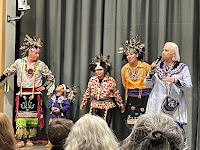



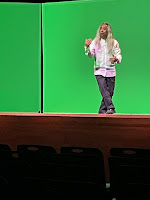
.png)
.png)
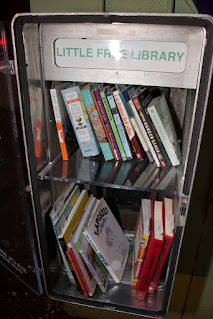
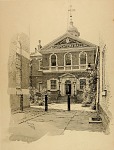
.png)

